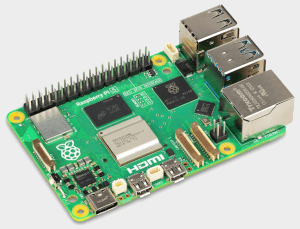
Setup & config options
Suitable power supply
RasPi & sFTP file transfer
Home network print server
Home network scan server
Mesh : home Lan USB drive
Explore hard & software
UFW firewall explained
Secured by fail2ban server
Software packaging & PPA
Apache 2.4+ LAMP server
https web server : port 443
Varnish caching proxy
Module : cgi & perl
Module : geoip
Modules : php & mysql
http*s error handling
Server : conditional logging
TL-domain & dynamic DNS
Webalizer log analyser
Defeat referrer spam
robots.txt & xml sitemaps
Server : .htaccess handling
The game & not the islands
Setup & config options
North Atlantic : Macaronésia
🚫 No ads & tracking
📅 The non-daily weblog published
📄 ➊
Caution  Proprietary and untested third-party software sources (Linuxes) can threaten the system.
Proprietary and untested third-party software sources (Linuxes) can threaten the system.
Microsoft's Skype close it's services after over two decades in 2025
Skype will no longer be available to use starting in May 2025. Telling thierusers that their log-in information can be used on Microsoft Teams’ free tier in the coming days.
Skype’s popularity has faded in the recent years, despite a pandemic bounce that lifted other competing products, including Zoom and Google Meet. Skype has also faced increased competition over the last decade and a half from apps like Apple’s FaceTime and Meta’s WhatsApp. Microsoft has been investing heavily in Teams, which offers many of the same services.
Skype launched in 2003 in Estonia and quickly caught on as a way to make free calls worldwide, a notable perk considering international calling on traditional phones used to be expensive. The Skype service quickly became popular, leading eBay to buy it in 2005 for $2.6 billion. However, the partnership did not work out, and eBay sold its 65% stake in Skype to an investor group for $1.9 billion in 2009 before Microsoft bought it in 2011.
01-Mar 2025
New Raspberry Pi 5 with 16 GByte SDRAM

Originally, the Raspberry Pi 5 was launched with two versions with four and eight GBytes of SDRAM. A version with two GBytes of SDRAM followed in summer 2024. Now the other end is being added, as announced today, a version with 16 GBytes of SDRAM will follow. The Raspberry Pi 5 opens up use cases such as large language models that benefit from more memory per core. In addition, more RAM also allows more virtual machines to be operated simultaneously. The optimized D0 stepping of the ARM SoC Broadcom BCM2712, which was introduced with the 2 GByte variant, enables the RasPi 5 to have memory sizes beyond eight GByte and thus supports such use cases. Suppliers currently charge around 140 euros for the new RasPi. In comparison, the eight GByte version costs just under 88 euros. The eight additional GBytes therefore cost around 50 euros.
11-Jan 2025
Tuta - formerly Tutanota - introduces it's calendar application

Last week, Tuta, formerly Tutanota, introduced the Tuta Calendar app for Android and iOS. This was previously integrated into the email client and can still be used there.
However, the developers are in favour of using the separate calendar app for several reasons. These include a widget, which is currently under development and provides an overview of the day without having to open an app first. In addition, the birthdays of contacts stored in encrypted form in the Tuta address book will soon be displayed in the new calendar app.
Another reason is the cross-platform synchronisation on both Android and iOS. In addition, although it is a separate app, Tuta Calendar is integrated into the Tuta email client: Calendar invitations that arrive in the Tuta mailbox are automatically displayed in Tuta Calendar. Calendar invitations can also be sent from the calendar app via the Tuta Mail account.
The data in the calendar app is secured with the same post-quantum encryption as the Tuta email service. Push notifications follow the zero-knowledge principle and do not reveal any information. Tuta Calendar is already available on Google Play.
11-Oct 2024
Debian updates the solver in the package manager APT

A solver is an algorithm for determining and resolving dependencies and conflicts when updating the package inventory under Debian. The package management system Advanced Packaging Tool (APT) was introduced 26 years ago and the currently implemented solver is just as old.
In view of the changed requirements since then, it is time to develop a new solver. Given the complexity of the task, it is not surprising that developer Andreas Klode has been working on this task in his spare time since 2010.Solver3 is currently in the alpha phase and was introduced experimentally in APT 2.9.3. To test the new solver, the solver 3.0 option is also specified for actions with APT. Klode has described the functionality of Solver3 in his blog. He gave a presentation on the topic at the recent Debian developer conference DebConf 24.
Anyone who has maintained a Debian installation for many years and therefore probably has an extensive package inventory will know that APT takes a long time to update the sources during an apt update.This is because APT spends 45% of its time checking the entire dependency tree during updates and upgrades. This means that all dependencies in the archive are run through and checked to see whether they are all satisfied or not.This is a huge waste of time, which worked 26 years ago because there were not many packages and even fewer dependencies in the archive. But nowadays things are far too complicated to take all the dependencies in the archive into account.
Solver3 runs through the necessary checks much faster and can therefore save up to 40 % of the time.The new solver has a number of other time-saving functions.Firstly, manually installed packages are not removed. An explanation is offered as to why a package is updated or removed, tracing the path the solver took to resolve the package dependencies. The problem of why most package managers are so slow was addressed by former Debian developer Michael Stapelberg back in 2019.
Aptitude as an alternative to APT has the command aptitude why, which explains why a package is installed and what it depends on.APT will also have this function, but it does not yet work in the v2.9.7 version currently available in Unstable. Over the years, Klode tried out various approaches based on different mathematic principles before arriving at the current Solver3.
Solver3 will still require a lot of work, as Klose emphasised.Packages for several architectures should only be limited to the architectures used. Manually created packages should only be removed if explicitly requested, and a replacement package should be determined if necessary.Obsolete packages should also only be considered as a last resort. Solver3 should be ready for productive use in February 2025 for Debian 13 Trixie and become standard with its presumed release in summer 2025 with APT 3.0.
31-Jul 2024
📄 ➊